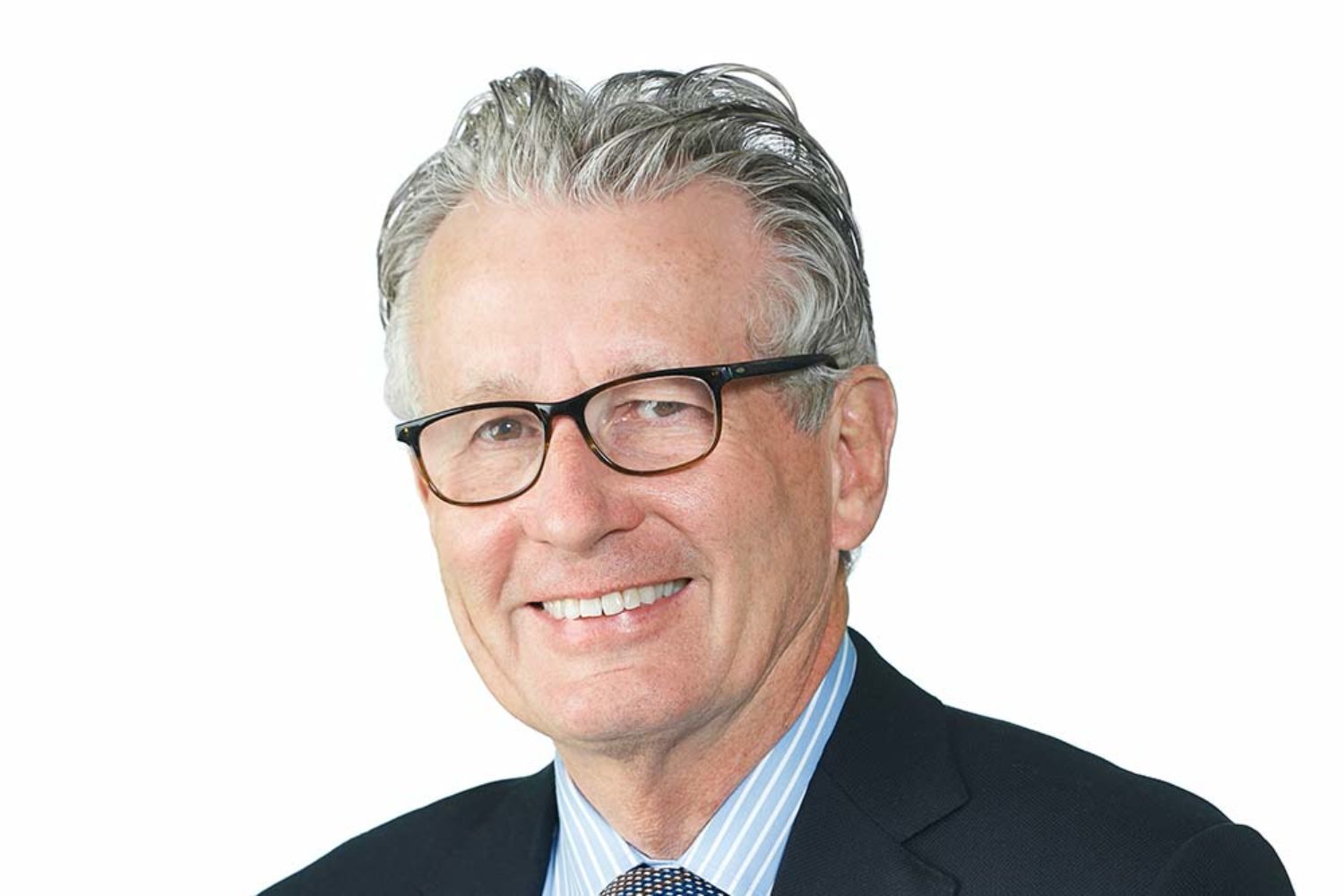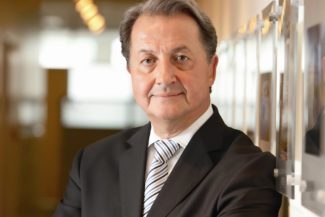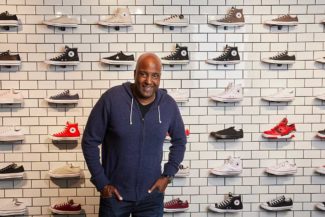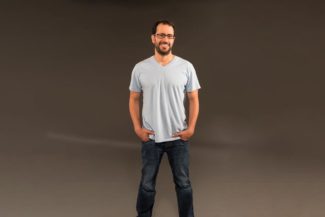“In order to signal change and invite reappraisal, the removal of Donuts from our name telegraphed there is more to Dunkin’ than just donuts. For almost 20 years, we have had the tagline ‘America Runs on Dunkin’ so we’ve been on a first-name basis with our customers for quite some time.”
~ Nigel Travis,
Executive Chairman, Dunkin’ Brands
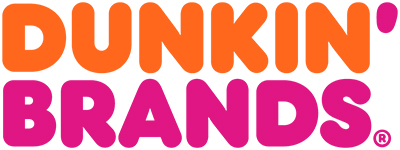
LG: Share with us why you decided to rebrand Dunkin Donuts to Dunkin’, and what challenges are you facing domestically versus internationally?
NT: For the past few years we have been focused on evolving Dunkin’ into the premier beverage-led, on-the-go brand. Dunkin’ is an iconic and beloved brand that enjoys strong brand awareness. The drawback of that high awareness is that guests’ perception of Dunkin’ may not reflect today’s brand offerings and experience. In order to signal change and invite reappraisal, the removal of Donuts from our name telegraphed there is more to Dunkin’ than just donuts. However, we kept our unique logo typeface and our orange and pink colors, so the updated branding both celebrates our heritage while communicating there’s something new about Dunkin’. And, after all, for almost 20 years, we have had the tagline “America Runs on Dunkin’” so we’ve been on a first-name basis with our customers for quite some time.
Simplifying and modernizing our name, while still remaining true to who we are, has enabled us to create a new energy for Dunkin’, both in and outside our stores. The brand identity system was intentionally designed to surprise and delight. Instead of a single logo treatment, we have found a way to present our brand in a variety of ways that hang together tightly with our unique typeface, name and orange and pink colors. We think it positions us as a more dynamic, on-the-go brand and brings fun, joy and delight to our customers each and every day.
LG: What business is Dunkin’ in?
NT: Dunkin’ is on a journey to be the premier beverage-led, on-the-go brand that focuses on coffees, teas, and on-the-go food, including signature donuts and breakfast sandwiches. As a 100% franchisee owned brand, everything we do is in conjunction with our franchisee community and, in return, they are able to provide us with a unique outlook, given their business expertise and their “boots on the ground” perspective. We work hand-in-hand with our franchisees, whether they are new or existing and whether they are entering a new market or nurturing an existing one, to ensure we’re getting it right for each customer.
LG: How do you define the Dunkin’ customer versus Starbucks and other coffee competitors?
NT: For nearly 70 years, Dunkin’ has been a daily ritual for millions of busy, on-the-go people. We like to say that people come to us to take 5 (minutes), not 50… and we are proud that we keep America running. As tastes change and competition expands, we are committed to remaining that brand everyone in America runs on. We recognize that consumers are more fickle than in the past, and more likely to go to multiple brands, but we work to keep them coming back to Dunkin’ with great coffee fast, great value and friendly, fast service that helps them get what they want and get on their way.
LG: You’ve been at the helm of Dunkin’ for a decade. Discuss the current trends in the marketplace…what are the drivers of these trends and do they reflect fads or fundamental change?
NT: The changes in the marketplace at the moment are probably the most fundamental in several generations. Operationally the biggest change in the history of quick service restaurants was the invention of the drive-thru and a similar driver i.e. the need for ultimate convenience ,is driving the next big change which is delivery. Delivery is transforming the whole restaurant space and restaurants at all levels from high end dining to quick service restaurants. The US is well behind the trends in International but will catch up quickly and this is driving revenues of companies such as Uber Eats, Grub Hub and Door Dash.
After this, there is a steady trend to plant- based food and like all companies digital and note we are very prod of our Dunkin’ app.
LG: Describe your leadership style in terms of culture and inspiring employees to ‘live and breathe’ your brand, and believe in your vision of the Dunkin’ brand voice.
NT: In terms of leadership and culture, it is very important to me and it is something I applied in my leadership of Papa John’s, Dunkin’ and now the football club I own in London called Leyton Orient. Essentially the culture is a very open one where everyone is treated the same regardless of level and in some ways you can describe it as “anti-hierarchy”. Obviously, it is critical that employees embrace whatever brand they are supporting and that comes down to true engagement with employees through being open and visible to them and taking the challenges that they put to you.
LG: Talk to us about the your new book The Culture Challenge and why you wrote it.
NT: My book, “The Challenge Culture” is really an expression of the beliefs that I’ve developed over many years of working in many large organizations. Clearly the “The Challenge Culture” has two words and the most important word is culture which to be embraces how an organization acts and feels every single day. The important thing is to have a culture and the challenge culture is just one form of culture. The challenge culture is where everyone is encouraged to challenge the status quo on a regular basis but not in an incessant manner every minute. It is insuring that in a very respectful way everyone has the opportunity to openly challenge and to ask questions. However that requires a safe and trusting environment.
LG: Your career started in human resources for numerous iconic brands. How has a foundation in HR enhanced your business career in the franchise sector?
NT: When I reflect on my history, I think two early experiences have helped me to become successful as a general manager. One was soccer coaching, because it has enabled me to learn how to engage people of different ages and experience levels and secondly human resources. It was suggested to me when I was in school, that human resources were the social workers of a company but nothing could be further from the truth because in HR you often have to carry out very difficult and unpleasant tasks, like layoffs. It teaches you to be empathetic and really builds the skills of EQ. HR is also about communicating and understanding people very clearly and I feel that these are skills have been extremely beneficial through my career.
LG: What advice would you like to share with business school students looking to drive remarkable success with their personal brand?
NT: My advice would be to get as much experience as you can as early as you can and do not over plan the future. I have found through my career by working as hard and effectively as I can in a position, opportunities will open up. Too often people over plan and frustrate themselves because they are not making the progress they want.

